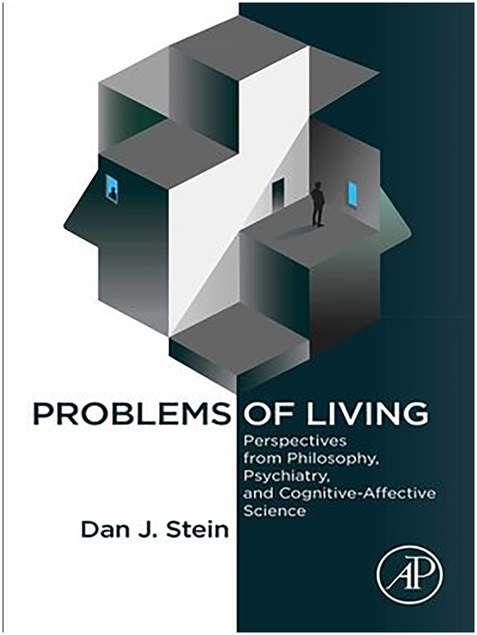
Dan Stein's new books is an engaging and courageous piece of writing that raises fundamental questions about the nature of mind and brain. It examines how to live a fulfilling life and be contented, despite the paradox of, on the one hand feeling our lives are central to the world, and on the other, that we are just one of many species.
Stein dissects our assumptions and exposes weaknesses in the way we tend to think about the mind and brain in science. Furthermore, these paradigms appear to serve a purpose at a specific stage of scientific advancement and can end up in opposition or perhaps even overly restricting scientific advances in the real world.
The lighter narrative reflects Stein's journey through different stages of his career as anchor points around which his thinking and the science of psychiatry has flourished. In contrast, the philosophical sections are weightier and denser, yet made pleasantly accessible to the general reader. I found myself reading these earlier sections several times to fully grasp how swathes of philosophical research are relevant to contemporary psychiatric practice.
Stein's plea is to bring together disparate and often opposing views to provide an integrated cognitive-affective science. Formulating the brain–mind as wetware, Stein offers a new approach to understanding the dynamic interactions between brain and mind, society and the environment bringing biological and social perspectives into proximity, illustrating these to be all part of one interactive complex system in health, and showing how this system falters in illness.
Stein investigates the mechanisms that underlie reason and passion, from a philosophical and psychiatric perspective. There are key implications for psychiatric and psychological practice, public mental health and societal flourishing. His primary source material is rich, and he communicates a sense of awe and of wonder about our precious and transient lives, as well as a synopsis of a more authentic and progressive scientific account of the mind and brain wetware. All trainees and students of subjects related to the mind and brain should read this book, as should those specialists working daily in health and social systems and public mental health. The book busts many myths simply by sharing what we know about the brain and mind, which is a great deal, but it also is clear on the limitations of our thinking.
Declaration of interest
K.B. is Editor in Chief of the British Journal of Psychiatry.




eLetters
No eLetters have been published for this article.